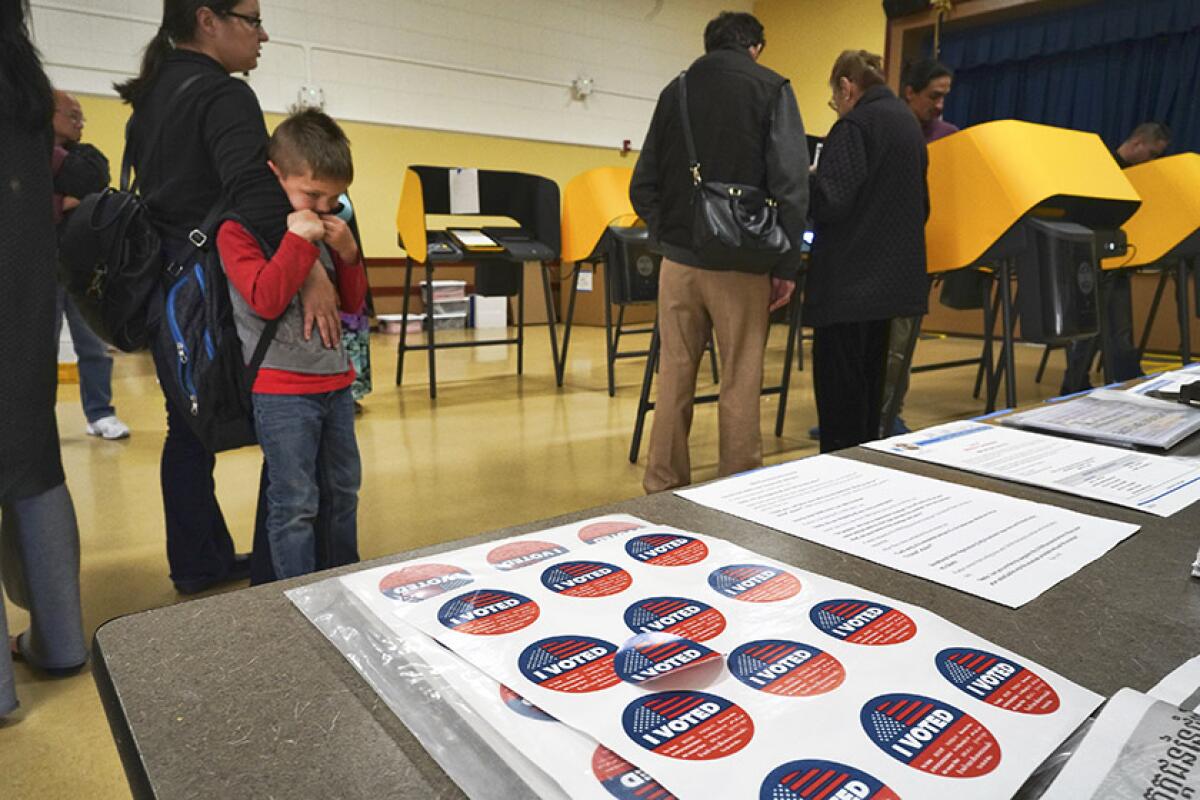More Angelenos are turning out to vote. We can thank L.A.’s new election schedule

- Share via
Five years ago, Los Angeles voters decided overwhelmingly to move city elections from odd-numbered to even-numbered years to coincide with presidential and gubernatorial elections. The hope was that, by aligning local elections with higher profile, higher turnout elections, the city’s anemic voter participation rates would be increased.
Last month’s primary was the first test of the city’s new election schedule. And guess what — it worked! Far more Angelenos voted in city council and school board elections than in the past. In some city council races, the number of votes cast tripled or quadrupled compared with the last election.
In 11 city council and school board races, 33% of registered voters cast a vote, on average. That doesn’t sound particularly robust, except when compared to recent local elections when just 10% to 20% of voters cast ballots. It’s all the more impressive because there has been a surge in voter registration since 2016, thanks to voter registration drives and state programs like the revised Motor Voter law that automatically register people to vote when they visit the Department of Motor Vehicles.
The big increase in voter participation should be no surprise. Researchers have documented that when local elections are rescheduled to coincide with state and federal elections, voter turnout typically increases by 15 points. It just makes sense to capture the voters who show up in greater numbers for higher-profile state and federal elections.
Skeptics of moving L.A.’s election dates worried that local races would be overshadowed by national and state contests. That could make it harder for grassroots candidates to raise money and get their message out.
But in several races, grassroots candidates with less money nevertheless managed to force more established and well-funded candidates into runoffs. Incumbent Councilman David Ryu will face challenger nonprofit leader Nithya Raman. Longtime politician Mark Ridley-Thomas will face attorney Grace Yoo.
There was also concern that voters would show up for the high-profile state and federal races and “drop off” for local races. That didn’t happen either. Between 80% and 90% of voters who cast ballots in the primary voted in their council race. It probably helped that local elections were placed at the top of the ballot in Los Angeles County, thanks to a 2018 bill by Sen. Anthony Portantino (D-La Cañada Flintridge).
It wasn’t easy to shift L.A.’s massive election infrastructure to a new date, but the effort appears to have paid off. Democracy is stronger when more voters participate in local elections.
More to Read
A cure for the common opinion
Get thought-provoking perspectives with our weekly newsletter.
You may occasionally receive promotional content from the Los Angeles Times.









